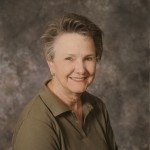
Sue Tsuda has experience in the complementary arenas of local government and community colleges. Sue has served in staff positions in local government ranging from intern to city manager in Oregon and California. She also has served as an appointed and as an elected official including city council. Her experience in education includes coordinating programs in CalWORKs, Workforce Development, Student Support Services, career and transfer planning, providing instruction in student success, life skills, workplace skills, career planning, tutor training, history, and government. She also is a successful grant writer. Land use planning and economic development are particular areas of interest. Ms. Tsuda has her Masters degree in Public Administration from California State University, Long Beach and a Bachelors degree in Political Science from California State University, Fullerton. She also has a certificate in Urban Planning from University of California Extension, at Irvine and post-graduate work toward another Masters Degree in Urban Planning at Cal-Poly, Pomona. Sue came into local government as a volunteer with the League of Women Voters and later went to work in the field she loves. Her greatest compensation is the opportunity to help others help themselves. The day she was hired as the first Town Manager of Yucca Valley, CA, the town experienced a 7.6 earthquake. The silver lining was the law that allows a fast track to formation of a Redevelopment Agency that is useful as an economic development tool. Ms. Tsuda’s career has provided broad experience in both local government and community college issues and opportunities. |
Specialties:
|
Tag Archives: programs
Diana Kelly

Diana K. Kelly has over 25 years of experience in higher education, providing faculty development seminars and workshops in the U.S., Ireland, England, and Germany. She has also made several keynote presentations for colleges and for international conferences on teaching and learning as well as lifelong learning. In her stimulating workshops and seminars, Diana models “best practice” by using active learning methods and by providing practical materials for participants to use in their teaching. She also facilitates an imaginative “visioning” process for strategic planning, including developing a campus strategy for teaching and learning. Diana Kelly has written chapters for two recent books on faculty development:
Diana Kelly earned her doctorate and master’s degree in Higher Education at the Claremont Graduate University. Her bachelor’s degree is in Communications (Broadcasting) from California State University, Fullerton. Before starting to teach at Fullerton College in 1980 she was a radio broadcaster at KWIZ radio in Santa Ana. As a graduate of Fullerton College (AA English), Diana Kelly is strongly committed to the mission of community colleges and understands the challenges of teaching and learning in community colleges. She worked in the California Community Colleges for 19 years, first as a full-time faculty member in Communications, then as a faculty developer, and finally as an Associate Dean of Continuing Education. Most recently Diana Kelly has spent six years in leadership roles in faculty development in two well-respected universities in Ireland: the Dublin Institute of Technology and Trinity College Dublin. Diana Kelly has returned to California, working as a full-time higher education consultant. |
Specialties:
|
Nancy Stetson
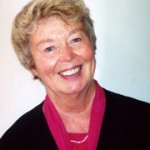
Nancy E. Stetson, Ed.D., was the founding president of Company of Experts.net (COE.net), a highly successful firm she founded in 1989 primarily to serve the professional and organizational needs of colleges, community colleges, schools and universities. She and her business partner, Charles R. Miller, sold the business to COE.net principals Jim Pulliam and Kathy Becker in 2005. While mostly retired, Nancy occasionally serves as an Expert on Call for COE.net. Since 1979, Nancy personally has provided hundreds of consulting, executive coaching, facilitating, keynoting, and training services to more than 125 organizations-corporations and businesses, educational organizations, governmental organizations, and non-profit organizations-and, within those organizations, to many groups and individuals. Nancy has made more than 100 presentations at international, national, and state conferences. She also has published dozens of professional articles and monographs. She is the co-author, with Miller, of Appreciative Inquiry in the Community College: Early Stories of Success, published in 2004 by the League for Innovation in the Community College; and author of Stories of Positive Change in the Community College: Appreciative Inquiry in Action, published in 2008 by Company of Experts.net. Her publications also include light verse, poetry and short stories, and she is currently seeking an agent for several “picture” books for preschoolers. While working as a part-time consultant, Nancy also worked full time from 1972-91 for several colleges, holding a variety of executive-level management positions including Vice President for Planning and Development and acting Vice President for Student Services. From 1991-97, she taught college courses full time. From 1997-2001, she taught many part-time undergraduate and doctoral-level courses in business, communications, education and leadership/management/supervision, face-to-face and online, at six different two and four-year public and private colleges and universities. She continues to be a Mentor/Assessor in Walden University’s Ph.D. in Education online program, specializing in Community College Leadership. Jane Magruder Watkins and Ralph Kelly of Appreciative Inquiry Unlimited trained Nancy as an Appreciative Inquiry practitioner. She holds a doctorate in higher education from Nova Southeastern University, and did post-doctoral work in higher education on classroom assessment at University of California at Berkeley with K. Patricia Cross and Thomas A. Angelo. Nancy earned a Master of Science degree in individualized studies/organizational behavior from Central Washington University, a Bachelor of Arts degree in writing and development from The Evergreen State College, and an Associate in Arts degree from Wenatchee Valley College. She also attended Swarthmore College for several years before taking a 13-year break in her education in order to be a full-time parent to her two daughters, Laurel and Nancy Lee. She is the proud grandmother of Laurel’s two sons, Connor and Brendan; and pays motherly and grandmotherly attention to some of her former husband’s children and grandchildren. Nancy’s honors and awards include:
|
Specialties:
|
Charles Miller
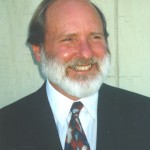
Charles R. Miller was a full-time member of the faculty at a northern California community college for 31 years, serving as an instructor, learning specialist and coordinator of faculty and staff development. He also served as adjunct faculty at the University of San Francisco and The Professional School of Psychology. Charles was the vice president of Company of Experts.net for ten years. He is now an Expert on Call with the same company, specializing in Appreciative Inquiry and the Enneagram. He has been certified by COE.net as an Appreciative Inquiry Facilitator and as an Appreciative Inquiry Facilitator Training (AIFT©) Trainer. Charles works as a consultant, facilitator, and trainer throughout the world. He was the national director of the Instructional Skills Workshop (ISW), a training program for college and university faculty. Miller has an extensive background in conducting workshops for faculty, staff, and colleges, including Active Learning, Appreciative Inquiry, Classroom Assessment, Collaborative Learning, Enneagram, Great Teaching Seminars, Instructional Skills Workshops, Presentation Skills Workshops, Relationship Training, Right to Succeed/Helping Students Succeed, Strategic Planning, and Student-Centered Instructional Principles & Practices©. His clients have included dozens of schools, community colleges, and four-year colleges and universities, including Concordia University in Montreal, Golden Gate University, Sonoma State University, and Samuel Merritt College. In 1995, Miller received the John Fry Individual Leadership Award from the National Council for Staff, Program and Organization Development. In 1996, he received the Lorraine Barry Individual Leadership Award from the California Community Colleges Council for Staff Development (4C/SD). Charles has completed the coursework in a doctoral program in clinical and organizational psychology at The Professional School of Psychology in San Francisco. He holds a master of arts degree in psychology from Sonoma State University, a master of arts degree in English from San Francisco State University, and studied at Rikkyo University in Tokyo, and Mexico City College. He holds a bachelor of science degree in marine engineering from the California Maritime Academy. Charles was trained as an Appreciative Inquiry practitioner by Jane Magruder Watkins and Ralph Kelly; and as an Executive Coach with an Appreciative Approach by Bill Bergquist and Kathleen O’Donnell. He is an Expert on Call with Company of Experts.net, co-Owner of Appreciative Inquiry Consulting (AIC), LLC, and a member of the Positive Change Corps. |
Specialties:
|
Chuck McIntyre
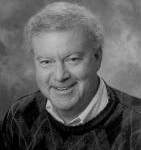 Chuck McIntyre of northern California, has consulted and worked in higher education planning, research, evaluation, finance and management since 1971. Until 1999, he worked as Director of Research and Analysis in a state office of higher education and has consulted with colleges across the U.S., in the United Kingdom and Canada since the early 1999s. His recent engagements have been in the areas of strategic and facilities planning, emphasizing enrollment forecasting, planning, and management – using computer simulation models, recently-released 2000 Census data, and other sources and tools. Chuck McIntyre of northern California, has consulted and worked in higher education planning, research, evaluation, finance and management since 1971. Until 1999, he worked as Director of Research and Analysis in a state office of higher education and has consulted with colleges across the U.S., in the United Kingdom and Canada since the early 1999s. His recent engagements have been in the areas of strategic and facilities planning, emphasizing enrollment forecasting, planning, and management – using computer simulation models, recently-released 2000 Census data, and other sources and tools.
ENROLLMENT FORECASTING, SIMULATION, AND MANAGEMENT Since the early 1990s, Chuck’s work has emphasized enrollment planning and management. In 1993, he developed an econometric model that is currently used in long-range enrollment forecasting for the capital planning at local districts in a state system. He conducted a study for the Maricopa Community Colleges in 1995 on the enrollment-impact of tuition and fees; results have been used by the district for long-range policymaking. Chuck then worked, in 1996, with Lincoln University on a computer model to simulate a variety of enrollment management initiatives in marketing, admissions, registration, and student retention, all designed to tie into budgeting models. Chuck also completed a 1997 study of Pima Community College’s past and future enrollment patterns for its use in planning. In Spring 1997, he was published in Jossey-Bass’ New Directions for Institutional Research, and has spoken on enrollment management at national conferences like the American Association for Community Colleges (SCUP), Association for Institutional Research (AIR), Society for Needs assessmentCollege and University Planning (SCUP), and the Consortium for Community College Development (CCCD). In Fall 1998, Chuck spoke at the European AIR in Spain about use of computer models to forecast enrollments and plan budgets. Also in 1998, he conducted an enrollment simulation and planning (ESP) study at Lansing Community College and, in 1999, he conducted ESP studies at Portland, Mt. Hood and Lane Community Colleges in Oregon and for the State Office of Michigan Community Colleges. In Fall 1999, AACC published Chuck’s book on Enrollment Simulation and Planning. Since then, Chuck has worked on ESP projects at colleges in Oregon, Michigan, Massachusetts, California, Washington, and Texas. STRATEGIC PLANNING Recent engagements by Chuck with Palm Desert and San Mateo (California) and Austin (Texas) Community Colleges have involved a form of strategic planning – learning-centered strategic planning – that emphasizes efforts by these institutions to concentrate in a variety of ways on student learning. Chuck spoke about this technique at a SCUP regional conference in 2002. Chuck’s work in college planning and evaluation spans nearly three decades, beginning in 1974 with an Exxon Education Foundation grant for research on the book Planning Colleges for the Community, published by Jossey-Bass. In 1978, he directed work, supported by a Vocational Education Act grant, on assessments of community educational needs; and in 1981, he was awarded a four-year Fund for Improvement of Postsecondary Education grant to develop new ways to tie college planning and evaluation to accreditation. Since then, Chuck helped develop several long-range plans for a state Board of Governors, has written a number of articles and monographs on college planning, and has directed numerous workshops and symposia on the topic using techniques such as Charrette, Delphi, Nominal Group Technique, and Total Quality Improvement. He has spoken frequently on planning at national and regional conferences like AACC, SCUP, AIR, Pacific Northwest Association for Institutional Research and Planning, Western and Southwestern Regional SCUP, Southeastern Association for Community College Research, California Community College Board of Governors, California AIR, Community College League of California, California Community College Trustees, and California Research and Planning Group, and at many local colleges. As Director of Research and Analysis, he was responsible for numerous state-level planning and evaluation projects, including environmental scanning and futures research projects, one of which was honored in 1996 with a Research White Paper grant from AACC and the Sloan Foundation, and published in Core Issues in Community Colleges (AACC, 1997). FACILITIES PLANNING During 2000, 2001 and 2002, Chuck conducted projects in long-range facilities planning for Mt. San Antonio (CA), Mt. Hood (OR), and Austin (TX) in preparation for capital financing bond elections. These projects involved computer modeling of facility needs, formulation of new space and utilization standards, and new kinds of classroom configurations. He currently is involved in a similar project for College of the Desert (CA) and has an article on the topic forthcoming in the Spring 2003 issue of the Journal of Applied Research in the Community College. Earlier, in 1990-91, Chuck designed and implemented a computer model to project 15-year facility needs for a state system of community colleges; the resulting Board of Governors’ Long-Range Capital Outlay Plan was used to plan and allocate capital outlays for nearly ten years. POLICY RESEARCH Over two decades, Chuck conducted and directed numerous policy research projects for a state office about community college transfer, tuition, fees and financial aid, student services and other topics. His article on transfer performance was published in Research in Higher Education in 1989. Other work includes policy research on such topics as the impact of fees on enrollment (1993), growth funding formulas (1996), and welfare reform (1997), among others. Also in 1997, Chuck completed four technical papers for the 2005 Task Force, a long-range planning effort about future college needs and funding, sponsored by a state Board of Governors and Chancellor. Chuck served on the Research Commission of the AACC between 1997 and 2000. COMPUTER MODELING For the past decade, Chuck also has engaged in many computer modeling projects, designing, developing and implementing planning and decision-support tools for colleges and universities. In 1989, he developed a computer model to forecast college faculty replacement, which was used in human resource planning and presented that year at SCUP. Between 1990 and 1995, Chuck directed a consortium of three dozen community colleges in the U.S., United Kingdom, and Canada in developing computer-aided planning (CAP) models. This work-involving model design, development, quarterly workshops with participants, and testing–was to produce robust and systematic computer simulation models to help colleges plan and make policy decisions. During the CAP project, Chuck held a 1993 planning symposium for staff from community colleges throughout England, Scotland, Wales and Ireland. Among colleges participating in the CAP project were Bilston in Birmingham (England), Lethbridge in Alberta (Canada), Kapiolani (Honolulu), and three-dozen other colleges from the mainland U.S. OTHER EXPERIENCE AND ACADEMIC TRAINING Earlier in his career, as Director of Analytical Studies with a state office of higher education, Chuck directed the design of the office’s first computer-based management information system and was responsible for the design and implementation of two financing systems by which the state office allocated funds to local districts. Chuck also has worked on projects assessing the economic impact of colleges, and in 2001 he helped AACC evaluate a new cost-benefit model for this purpose. Chuck’s academic training is in economics: PhD from University of California, MA from California State University; and in anthropology: BA from University of Colorado. He has taught undergraduate microeconomics and graduate higher education finance at the California State University. Prior to working in higher education, Chuck played professional baseball for the Milwaukee Braves organization. |
Specialties:
|
Frank Gornick

Frank Gornick is chancellor of a community college district in California serving one of the poorest regions of the nation. Enrollment has increased three fold since 1994 while the total district revenues have been matched with an aggressive federal and state grant program. The district consists of two colleges, as well as centers throughout the 3,000 square mile service area. In 2002, the district was recognized by the Met Life Foundation “For excellence in promoting education and economic advancement for underserved youth and adults.” In 2004, the college district was awarded the prestigious California Community College Chancellor’s Diversity Award for Excellence for its work in promoting and hiring a diverse administrative staff. Campus Compact recently featured this college in its spring publication: One with the Community: Indicators of Engagement at Minority-Serving Institutions. Dr. Gornick has led an aggressive campaign for child care in his district with a goal of placing a college-operated child care facility in every community the district serves. The district’s intent is to address the whole family’s educational needs and promote access to education through the use of these centers. He has fostered the aggressive use of technology by forging strategic partnerships with Cisco Systems, Pacific Bell, Federal agencies, local Workforce Investment Boards and others to deliver low cost solutions of access to technology. This effort has led to one of the most advanced on-line educational programs in the state–if not the nation. Retention rates exceed 75 percent. His staff has exploded the myth that poor citizens without access to computers will shun on-line educational opportunities. His low-key yet high energy approach to leadership encourages people by example and with enthusiasm. He has transformed the college into a district that knows what it is doing and cares about the people it is enabling. Dr. Gornick joined forces with community college presidents, AACC and business leaders to begin the discussion of the future of education in our country. Dr. Gornick wrote an article for the Community College Journal, December/January 2006 edition titled: A Call to Action: Reclaiming our Competitive Advantage. Dr. Gornick and the other leaders are beginning the dialogue on a national level this year. |
Specialties:
|
Earl Bloor
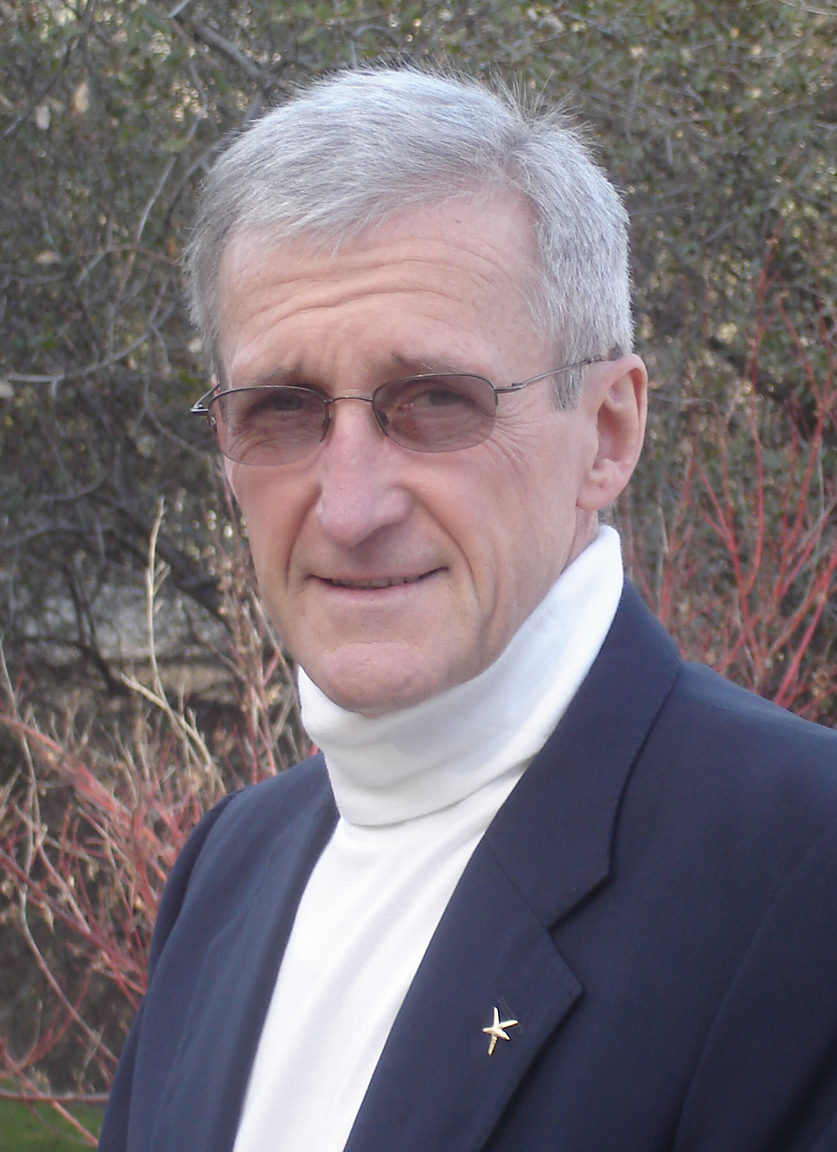
Earl Bloor has a diverse background spanning higher education, government and industry, including twenty-five years as a chemistry instructor and administrator of a wide range of college-level programs, including arts, sciences, health occupations, technology, and trades programs. He has managed major instructional divisions in colleges in Canada, Massachusetts and California, and in Abu Dhabi (UAE). In government, he has worked with departments focusing on human resources development and apprenticeship training. For a two year period, he coordinated corporate development and training programs for a Middle Eastern oil operating company. With his wife, he publishes a regional magazine which focuses on sustainability issues. Earl has managed major curriculum development projects, such as the Competency Based Apprenticeship Training Program in Alberta (Canada) and the Adult Applied Academics Project in British Columbia (Canada). Earl was one of the first Facilitators/Trainers of the Instructional Skills Workshop Program, now a major element in instructional improvement programs in colleges and universities around the world, and one of its original Directors. Earl has been certified by Company of Experts.net as both an Appreciative Inquiry Facilitator and an Appreciative Inquiry Facilitator Training (AIFT©) Trainer. He is also a certified Team Coach. Earl’s experience has led him to understand that empathy is at the root of every successful human relationship. “My approach to supervision is relationship-based. I believe that every employee seeks to do the best job s/he can do. If there are factors preventing peak performance, these need to be identified in a non-threatening manner and addressed. This belief is at the base of the work I do to help organizations plan to achieve the goals that are most important to them.” Earl earned a Ph.D. in Chemistry from the University of Western Ontario (London, Canada) and conducted research at the University of Illinois and Simon Fraser University (Canada) before settling into a long and rewarding career based in community colleges around the world. |
Specialties:
|
Barbara Kerr

Barbara A. Kerr has worked in higher education as a faculty member, an administrator, a consultant, and an executive coach. As part of her consulting services, she has assisted three Washington State college boards in hiring their college presidents, and has facilitated the hiring of many other college administrators and faculty. Currently, Barbara is the principal of a Seattle-based consulting firm that provides coaching and consulting services to government, non-profits, higher education, and business organizations. Barbara has completed a post-graduate training course as a Master Certified Executive Coach and is a certified administrator of the EQ-i, an emotional intelligence inventory, as well as a number of other assessments to assist individuals, teams, and organizations in moving forward. She has developed a unique dual coaching process that provides individual coaching for executives while at the same improves and enhances the work of the executive team as a whole. She has developed expertise in working with individuals and teams to assist them in clarifying their values, creating a vision in alignment with those values, building a plan of action, and supporting the implementation and assessment of the plan. She has also developed an interactive board game to assist clients in better understanding the concepts of emotional intelligence, as well as how to enhance their own competencies. She is the author of several books, including “Read All Your Life” and co-author of “You Can Choose Your Own Life.” Her clients have included many two and four-year colleges and universities, Center for Information Services, Commission on Colleges and Universities, United States Navy, the Washington State Board for Community and Technical Colleges, the Washington Educational Leadership Association, Olympic Mental Health Associates, Washington Mutual Bank, the Charles Moriarty Foundation, and a number of individual executives and administrators. Barbara has a Ph.D and an M.A. in English from Temple University. |
Specialties:
|
Kay Weiss
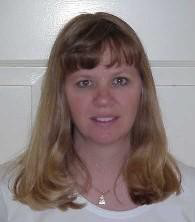
Kay Weiss is a community college administrator and has extensive experience in professional and organizational development. In addition to teaching, Kay has served as a division dean, department chair, committee chair, and Standard Chair for Accreditation. She received the outstanding professor of the year award at her college in 1999 and, in 2000, the Golden Apple Award from the San Bernardino Education Roundtable. In 2006, was the recipient of the National Leadership Award presented by the National Council for Staff, Program and Organizational Development (NCSPOD.) Kay has been certified by Company of Experts.net as an Appreciative Inquiry Facilitator Trainer and an Instructional Skills Workshop Trainer. Kay has been an extremely active volunteer with NCSPOD, serving as Western Region Vice President, President Elect, President, and Past President. She currently serves as Certificate Program Liaison, working with newer practitioners and mentors on NCSPOD’s professional certificate process. She has served as facilitator for the New Practitioners Institute, the Summer Institute and the International Professional Developers Workshop for NCSPOD. She has also served as the lead facilitator for various Campus Great Teachers Format Seminars, including Great Staff Seminars, and the Great Online Teachers Seminar and has utilized both Appreciative Inquiry and the World Café Model to facilitate dialogue about topics “that matter most” in a variety of settings.. Kay is a long-time member of the California Community College Council for Staff and Organizational Development (4C/SD), the International Reading Association, and the California Reading Association. She holds a doctorate in educational leadership from the University of Southern California, a master of arts in education degree from California State Polytechnic University, Pomona, and a bachelor of science degree in general studies/education from the University of Southern California. |
Specialties:
|
Kathy Becker
Contact Information:Address: Email: Kathy@CompanyofExperts.net Phone: Skype: company.of.experts Website(s): Social Media Networks: LinkedIn Groups: Working Portfolio: |

What might be possible if community and organization members were fully engaged and using their strengths to collectively achieve shared visions?
This is the question that motivates Kathy Becker and has her focused on collaboration. Given current global challenges, Kathy uses strengths-based organizational design practices to help clients respond effectively to increasing levels of complexity in their environments and growing demand for innovation and change.
Kathy is the CEO/President of the Company of Experts, Inc. and oversees this Small Woman Owned Business serving schools, colleges and universities, businesses, corporations and non-profits moving them from deficit models of planning and thinking to engagement, empowerment and collaboration. Under Kathy’s leadership the Company has developed a world presence and is continuing to add new teams throughout the world including Africa, Australia, Canada, Europe, Middle East and South America.
Kathy’s employment history includes 20 twenty-years at a college that began a premier international student’s program for undergraduate students. Kathy has knowledge of the housing, personnel, visa, hiring and orientation, health and curriculum decisions that will go into the development of this project.
In an academic environment, Kathy served as a founding Chief Human Resources Officer, Staff Development Coordinator, Equal Employment Opportunity Officer, and has had direct responsibility for contract negotiations, sexual harassment training, discrimination investigation, mediation and conflict resolution, discipline and grievance, management training, and leadership development.
Kathy has also served as an elected board member for a number of non-profit organizations and has relocated her company to Las Vegas, Nevada to be part of the energy, creativity and change.
|
|
Macon Miracle:
World Appreciative Inquiry Conference (WAIC) 2012:
|
Presentations:
|
|
|
| “Just a note to say how much I appreciate what you’re doing in the world and to let you know that AI continues to inform many aspects of all that I do.” ~ Susan Sanford, Certified AI Facilitator |


